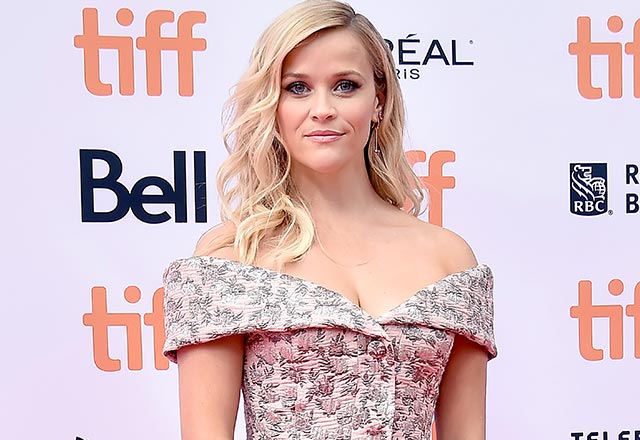
“I feel like I’m on a mission”
Big Little Lies may well be the crowning achievement of Reese Witherspoon’s career. Not only does she deliver arguably the best performance of her career as Madeline, the irrepressible Monterey, California mother of two who doubles as town socialite/doyenene, but she is also responsible for having developed, produced (together with co-star Nicole Kidman), and brought the female-driven series to life.
Ever since season one played to rave reviews and a massive international audience, the HBO limited series has created ripples throughout Hollywood and is part of a major wave of TV and film productions featuring women in central roles. Now entering its second season, Witherspoon is deeply proud of Big Little Lies and its importance in bringing depth and complexity to the female gaze in a series that is a unique event in television history.
“I never really had that opportunity in my career,” Witherspoon, 43, says. “Laura [Dern], Nicole and I would look around and go, ‘I can’t believe we have so many scenes together, that we have so many lines with each other, that we’re exploring our relationships…You rarely see films or TV series which present female characters in such depth and complexity. It was a revelation for all of us.”
And as much as audiences loved Big Little Lies, the the cast loved it even more. The personal bond between the series’ five main stars – Witherspoon, Kidman (Celeste), Shailene Woodley (Jane), Laura Dern (Renate), and Zoë Kravitz (Bonnie) – was so deep and nourishing that they all clamoured for another season. There was only one problem, author Liane Moriarity, whose best-selling eponymous novel was the basis for season one, had never written a follow-up novel.
But after Witherspoon and Kidman lobbied Moriarty to write a sequel, the Australian novelist turned out a 200-page novella (as yet unpublished) that provided the template for a second season that was again scripted by showrunner/writer David E. Kelley.
“It helped that the characters were [still] alive in her mind,” Witherspoon explained while promoting Big Little Lies Season 2 at the TCA panel in Pasadena, California, earlier this year.
The new season places even greater focus on the interior lives of the five Monterey women who must stick to their official cover-up story regarding the actual circumstances behind the death of Perry (Kidman’s character Celeste’s abusive husband) at the conclusion of season one.
“We were lucky that Liane Moriarty wrote a novella for us to use as a template,” Witherspoon said. “That gave us a basis for which to go on for each character. And we all had unresolved issues.”
An important new cast addition is Meryl Streep as Perry’s mother, who is skeptical of the women’s account of his “accidental” death. In addition, Andrea Arnold replaces original director Jean-Marc Vallée (who had other commitments) as further proof of Witherspoon’s commitment to creating a new female paradigm in Hollywood.Reese Witherspoon lives in Los Angeles with her Hollywood agent husband, Jim Toth, and their six-year-old boy Tennesee, and her two teenage children, 19-year-old daughter Ava and soon-to-be 15-year-old son Deacon, from her previous marriage to actor Ryan Philippe.
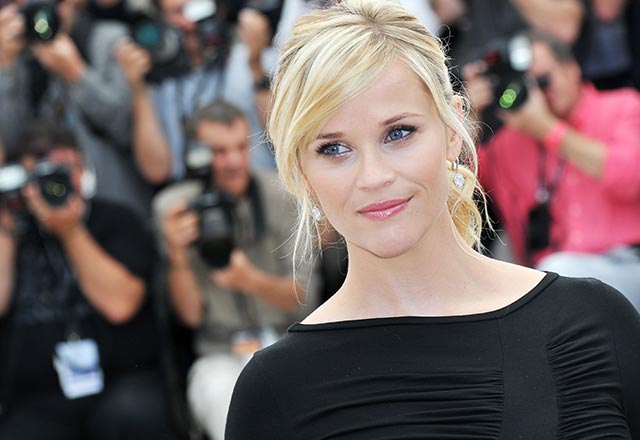
What were you most interested in when it came to how Season Two would take the story of these five women further?
REESE WITHERSPOON: We were all interested in exploring the aftermath of this trauma. We’ve talked about trauma, we’ve experienced trauma, and we’ve witnessed each other’s trauma – but how do we cope with it, how do we go on? We also needed to satisfy the audience’s curiosity: did they get away with it?!
While you were first developing the series, did you always know that you were going to play Madeline?
RW: No! I didn’t pick Madeline, Madeline picked. When I was discussing it with David E. Kelly (series showrunner/writer), when I brought up who should play Madeline, he just looked at me and said: “Well, of course you’re going to play Madeline!”
How did you first set things in motion?
RW: I was a voracious reader and after starting my own production company I began buying the rights to books like Gone Girl and Wild, which I bought with my own money.
I felt that I had to do better for myself and create more and create more opportunities for other women and that is what led to Big Little Lies.
It must be a source of satisfaction for you that you were the one who first hatched the idea of turning the Liane Moriarty novel into a series?
RW: When I think about what women have to contribute to film, it’s just infinite, and it’s just beginning to open up. It’s really beautiful, I’m very proud of having been able to bring together so many extraordinarily gifted women like Nicole, Shailene, Laura, and Zoe to be part of this series. Getting to spend time with them has made me appreciate even more how frustrating it is for women in our business to be able to find good roles.
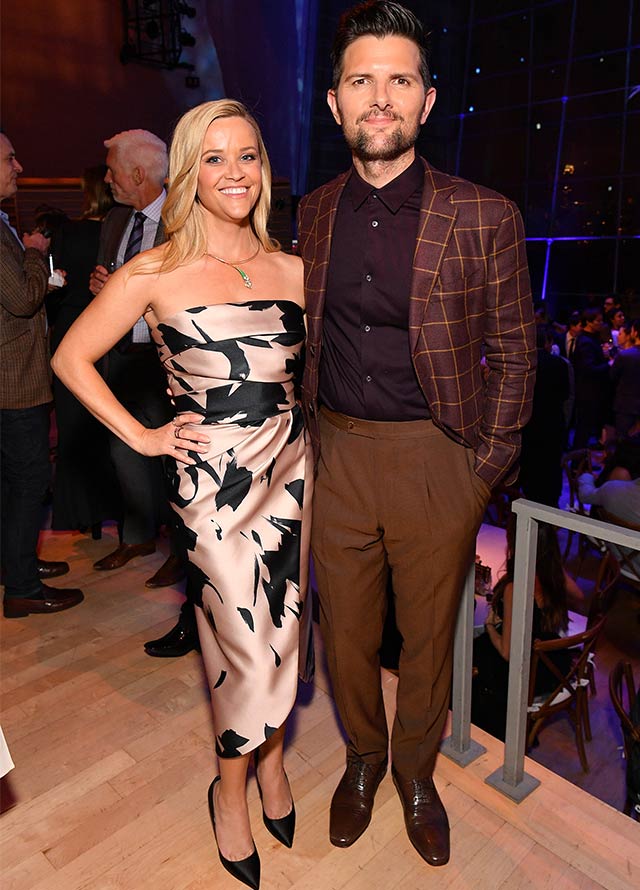
You are now in the midst of a whole new chapter in your career as both actress and producer. How does it feel?
RW: It’s an amazing time for me. If you work hard you can change so many things in your life. It’s the norm to become complacent over the years, sit back, and wait for the phone to ring with a new job offer and simply accept it.
But that’s not good enough for me. I love being active, and even more so, working with people who are working in the same direction as I am.
Do you see yourself as a leader amongst women in Hollywood who want to bring change to the industry?
RW: I feel like I’m on a mission. It’s my main goal to create more female-driven projects and give more opportunities to women at every level. I started producing five years ago because I was so frustrated and infuriated by the lack of good roles for women and watching so many talented women playing wives or girlfriends or stupid women. That’s what motivated me to get Big Little Lies made. That series showed how we can create powerful dramas where women are presented as complex and intelligent and active individuals.
Do you think your best years are still ahead of you?
RW: I think so! I think the forties are the best years for women. When you hit 40 you have a much clearer idea of who you are, and you know exactly what you want. So you surround yourself with the best people, you have a much better idea of what you want in a relationship, and you’re much bolder and less afraid. It’s a time of great personal growth where you have much greater self-awareness.
Do you think getting older will also open up a much wider range of roles for you?
RW: Yes. When I saw the first version of Big Little Lies in the editing room I immediately noticed the little lines on my face and I said to myself: “I like them, I got them one by one” (Laughs). I worked hard to get these wrinkles!” I can play women who have lived more and gone through a lot of changes not simply because I’m in my forties now but also because I’ve gone through that kind of evolution myself.
One of the things that struck me about Big Little Lies was how I saw my own life reflected in each of the characters because I was a divorced woman, I had been a single mother, a married mother, and I had another child in a second marriage.
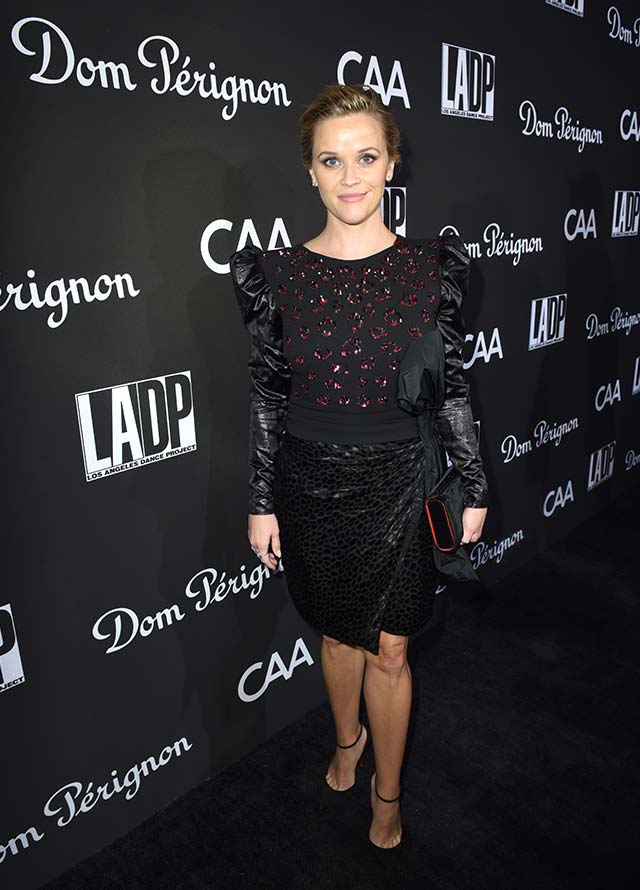
You must be proud of what you’ve accomplished as a producer with your company Pacific Standard and the enormous success of Big Little Lies?
RW: It’s been very satisfying. I always believed that the novel would make for an incredible story that we were able to tell over the course of seven episodes on TV. We wouldn’t have been able to have that kind of depth and character development had it been done as a film.
Were you in a way making a statement by creating a series that was driven by women and where life was explored from a female perspective?
RW: I have spent over 20 years in this business and often I’m the only woman on the set apart from the makeup artist or maybe the set decorator and one or two female crew members. There has been a lack not only of women’s stories but also simply a lack of interesting female characters for women to play.
That’s why it was such a privilege to work with so many outstanding women like Nicole, Shailene, and everyone else. For the first time in my career I was surrounded by so many powerful female actors and we all felt a sense of solidarity.
Several years ago you admitted to being in a bad place in terms of feeling unsatisfied with the work you were doing and the kinds of roles that were available to you. Was that what it took to get you to shake up your world and get more actively involved in producing?
RW: I still draw a lot of inspiration from my mom and what she accomplished in her life as a surgical nurse who also earned her doctorate while raising a family. She always told me that if you’re not happy with things then you need to stop complaining and do something about it.
I’ve also had a lot of encouragement from my husband who has supported me every step of the way and told me not to back down when it comes to asserting myself and fighting to get a project made. For years he’s been telling me that I would make a good producer because I’m always reading books and that I would know how to find great material for a movie or a series. And I finally did it.
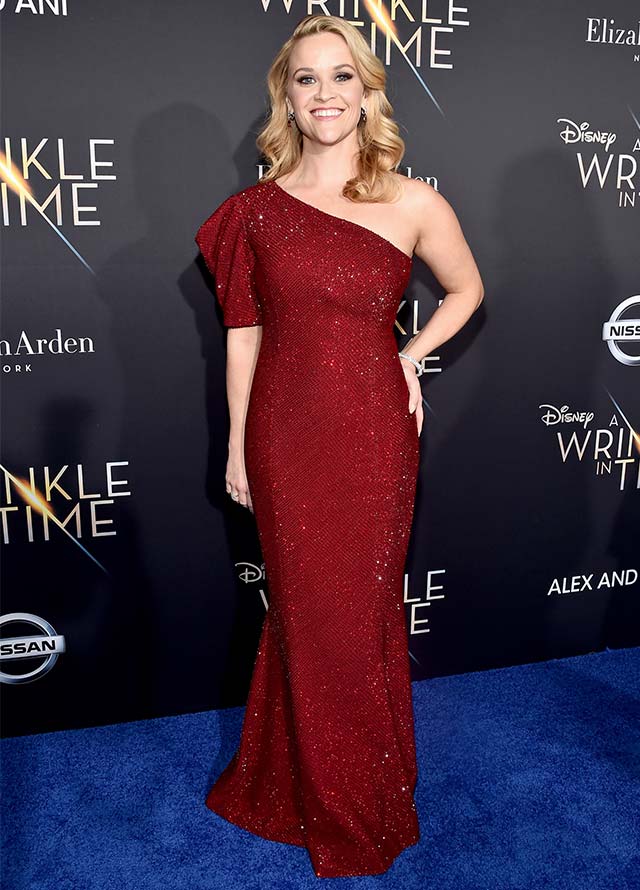
INTERVIEW BY WENN
PHOTOGRAPHS: GETTY![]()











































